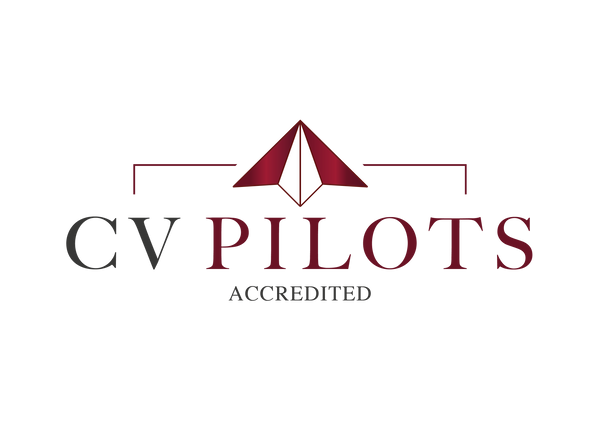
What Recruiters Say Makes a Strong Executive CV | CV Pilots UK
Recruiters Reveal What Makes a Powerful Executive CV
If you’ve ever typed “how to write an executive CV” into Google, you’ll know the problem: there’s too much advice out there. Some of it is outdated, much of it is contradictory, and plenty is just plain wrong.
So how do you know what really works when it comes to impressing recruiters and securing senior-level interviews?
We asked a panel of recruiters who specialise in hiring for C-suite and executive leadership roles. Their answers cut through the noise and reveal what genuinely makes a CV stand out – and what makes them move on to the next applicant without a second thought.
In this article, we’ll tackle four critical questions:
-
What’s the single most important thing recruiters want to see in an executive CV?
-
Which CV format works best for senior candidates?
-
How long should an executive CV be?
-
What are the biggest recruiter pet peeves (and how can you avoid them)?
If you’re ready to take the guesswork out of job applications and
give yourself a genuine competitive edge, our CV Reviews and
CV Template Bundles are designed to help you stand out in even
the toughest hiring markets.
CV Reviews – Save £60
If you’re not sure your CV is truly working for you, our
Professional CV Review Service provides in-depth, recruiter-level
feedback on content, structure, and ATS compatibility. You’ll receive
a personalised action plan showing exactly what’s holding you back
and how to fix it, so you can apply with confidence. Use discount code
PCVR60 at checkout to save £60 and give your next application the
competitive edge it deserves.
CV Template Bundles – Save £40
Prefer to write your own CV but want a proven framework? Our
CV Template Bundles include an ATS-friendly, recruiter-approved
template, plus our storytelling framework, metrics tracker, CV checklist,
and scorecard - everything you need to create a document that sells
your skills and achievements. Use discount code CVTB40 to get
£40 off and start building a CV that gets noticed for all the right
reasons.
These tools pull back the curtain on the hiring process, cutting
through the smoke and mirrors so you understand exactly what
employers and ATS systems are really looking for
What Recruiters Really Look For in an Executive CV
At the executive level, vague statements don’t cut it. Recruiters aren’t impressed by generic buzzwords – they want clear, tangible evidence of the value you bring.
In other words, your CV needs to prove you’ll impact the bottom line.
-
“By the time a candidate reaches executive level, they should be able to showcase their strengths and back them up with tangible accomplishments,” explains Jon Hill, CEO of The Energists.
-
“We want data-driven content with clear action and outcome descriptions,” adds Andrew Lynch, Director at Teaching Abroad Direct.
-
Recruiters like Darrell Rosenstein go further: “I want to see hard results… not just in words but in numbers. Executives must show their ability to provide high-level solutions.”
-
Carrie Schochet, President of Purple Squirrel Advisors, agrees: “An executive CV should highlight tangible financial and business accomplishments. That’s what convinces clients.”
For senior professionals, an impressive title isn’t enough. Recruiters expect metrics, outcomes and evidence of leadership impact.
The CV Format That Works Best
Despite what CV template websites might claim, executive recruiters don’t want flashy designs. Content comes first.
A clean, traditional layout is still the gold standard.
-
“A minimalist style is best. Two fonts maximum. Black and white. Substance over style,” says Rosenstein.
-
Hill agrees: “I’m always drawn to content. Formatting should never distract from achievements.”
-
Garland, who recruits in logistics and transport, warns against “pictures, oversized initials and fancy address formats” that break ATS systems.
The takeaway? Keep it clean, consistent and professional. Even in creative fields, presentation should never overshadow substance.
How Long Should an Executive CV Be?
One page is almost always too short. Recruiters expect two pages – and will tolerate three if your career is extensive.
-
“We expect an executive CV to be 2 pages and not to exceed 3,” says Schochet.
-
Holtzhauer puts it simply: “No more than two pages if possible. Be concise – clarity beats volume.”
-
Rosenstein confirms: “Two pages maximum is the sweet spot. Only include experience and achievements directly relevant to the role.”
-
Garland adds: “For executives, 2–3 pages is realistic. One page rarely does justice.”
Executive CV Pet Peeves
Recruiters are unanimous: senior candidates are held to a higher standard. Mistakes that might slide for a graduate CV will cost an executive candidate their credibility.
Here’s what turns recruiters off instantly:
-
Typos, sloppy grammar and inconsistent formatting – an immediate red flag.
-
Generic statements like “excellent communication skills” with no evidence.
-
Outdated CVs that haven’t been refreshed in years.
-
Irrelevant personal details (hobbies, family, irrelevant side jobs).
-
Objective statements instead of an executive summary.
As Hill says bluntly: “Anyone applying for C-level roles should know better than to send in a CV with typos and filler language. It’s an instant no.”
In Summary
Your CV is your first impression – and at the executive level, expectations are higher.
Recruiters want:
-
A clear, evidence-based track record of impact
-
A simple, professional format that won’t break ATS filters
-
A two-page CV that balances depth with focus
-
Zero sloppy mistakes or irrelevant filler
At CV Pilots, we specialise in creating executive CVs that deliver on exactly these points: impact, professionalism, clarity and credibility. When your career is on the line, it pays to get it right the first time.
To find out more, visit our website www.cvpilots.co.uk If you have any further questions, you can either book a consultation call with one of our team, or get in touch via email on team@cvpilots.co.uk

